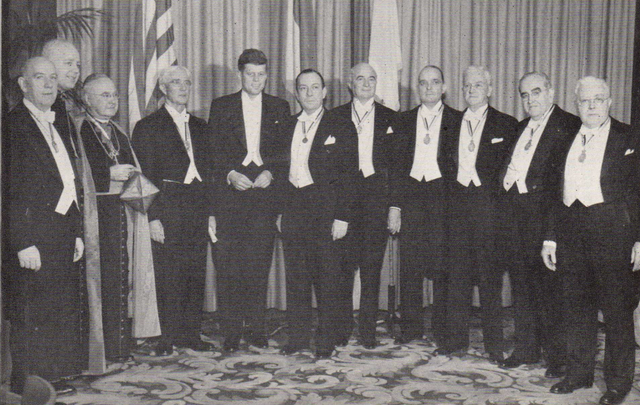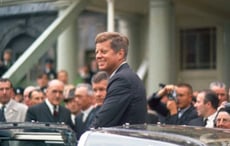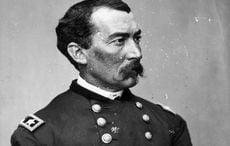Niall O'Dowd speaks to America's oldest and most prestigious Irish organizations on the importance of recalling Irish America's ancestors' journey to the US.
I had the great honor of addressing the Society of the Friendly Sons of St. Patrick dinner in New York City on March 16, 2023, at Cipriani 42nd Street.
As one of America’s oldest and most prestigious organizations, the New York chapter of the Friendly Sons has a long and storied history.
Since 1784, the Friendly Sons have endured and built their vision of helping the Irish in need, tracing back to destitute emigrants around the times of the American Revolution.
Past dinner speakers include presidents John F. Kennedy and Harry Truman, so it was with a deep sense of occasion and pride that I accepted the invite.
What follows is an abridged version of the speech:
I want you to think tonight of the people who got you here.
I am talking about those who came before us, who lifted us up from fleeing the Famine to the No Irish Need Apply signs to the prominent positions we hold now.
The last "No Irish Need Apply" sign was discovered in upstate New York in 1932, within the lifetime of people still alive, so it is no abstract consideration. They were certainly around in your grandparents’ generation.
You also know 100 years ago the only Irish allowed in a place like this would be a servant, a toilet cleaner or a waitress. At night those workers went home to hovels in the Five Points neighborhood Simply put they were people scraping out a desperate living, the victims of ethnic cleansing, not long off an emigrant ship known as the coffin ships because one-third of the passengers died even before seeing the promised land of America.
I want you to remember tonight those people who made it through it all, through the worst famine of the 19th century, the ethnic cleansing, the coffin boat voyage from hell and arrived here to face more prejudice. Yet they survived.
Remember tonight that’s where you came from and know who brought you, whose shoulders you stand on. When they took that first brave step and boarded the ship for America you traveled with them, and in America, they were victims of nativist hatred and every adversity known to man. What drove them is they sought a chance not just for them but their children and children’s children who would come after.
Wherever it got bleakest in Famine times there was only one way to escape, a whispering hope carried on every tide that America would truly be a land of the free for the huddled masses if they could only get there. They did and that's how you got here tonight.
They would be so proud, astonished even, to see how far you have come, how high we have lifted our heads and how remarkable the change has been in a few generations. Your success is the result of their sacrifice.
They left very little of a written record – it was too painful to look back – so they kept what seemed an eternal silence about what happened to them. The Famine became something to hide in the deepest recesses of your mind – too much pain, too much sorrow. "Banished Children of Eve" as writer Peter Quinn called them.
That is now changing. It is wonderful to report that since about the mid-1990s the Irish in Ireland have begun to grapple with the Famine and how it transformed both Irish and American history. The sound of silence is no more, either there or in Irish America.
Without the Great Hunger, many of you would not be here tonight. Someone from your family took their lives into their hands and embarked on a perilous six-week coffin ship ride across an often angry ocean. Before they left home they held an American wake, a final goodbye to the family and friends they would never see again.
We are the children and grandchildren of those brave souls. The Irish in America would never have existed but for them.
* Originally published in 2023, updated in March 2025.




Comments